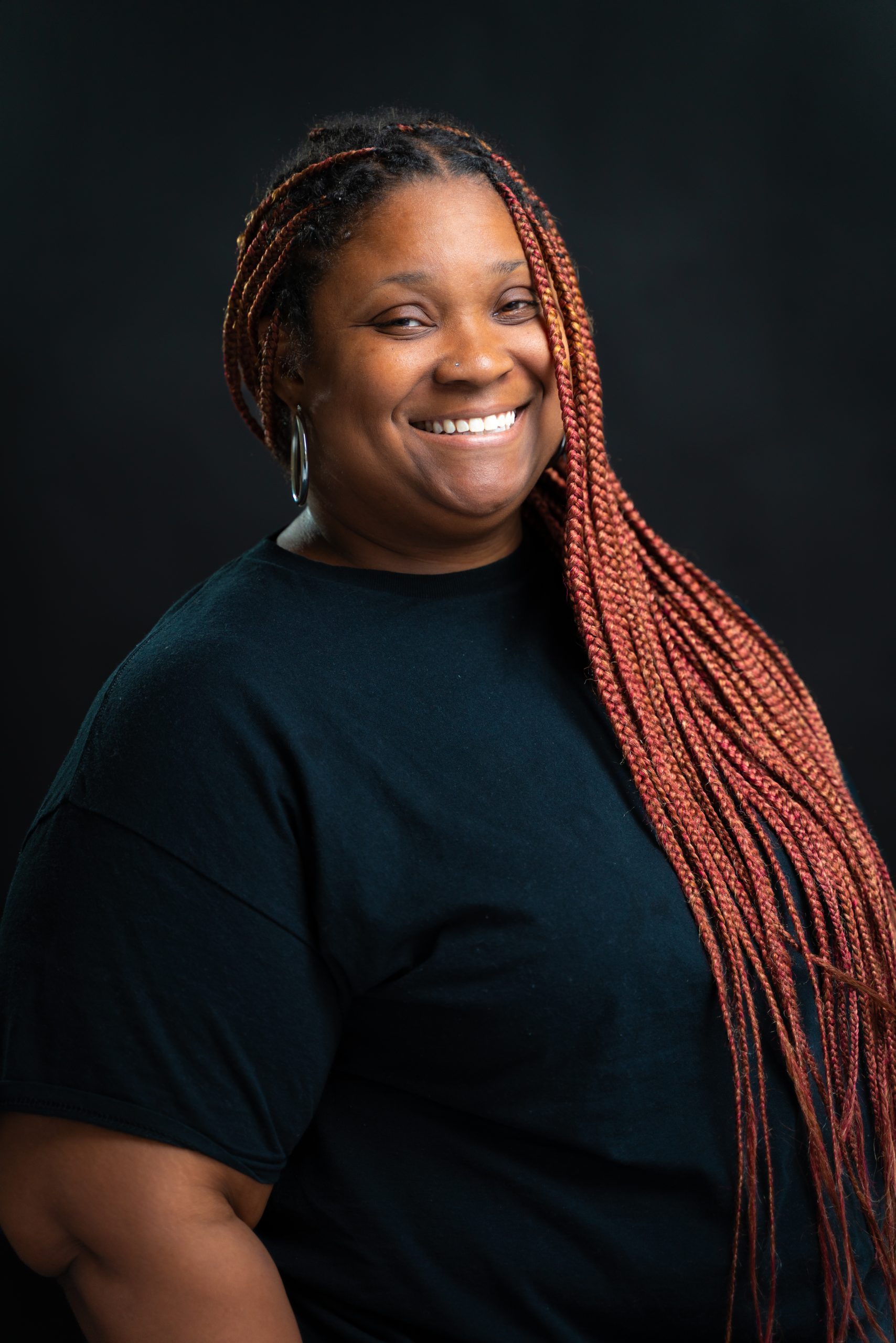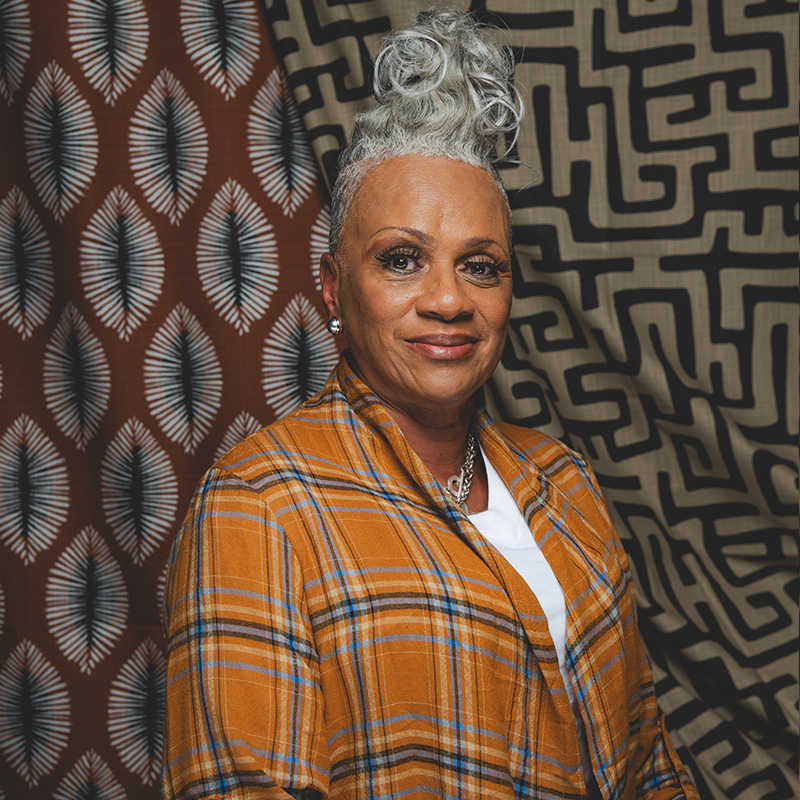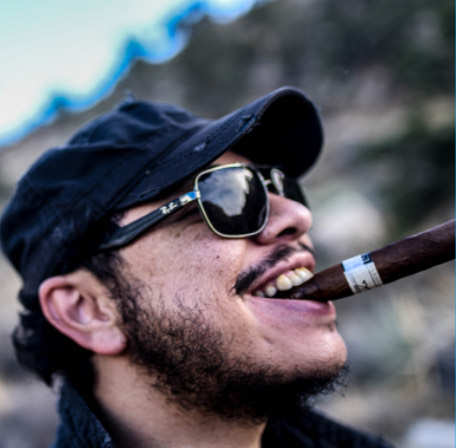
Zillah Wesley
Zillah Wesley
Speaker 1 (00:01):
All right. It is Thursday, May 9th, 2024. It’s 5:30 PM on the dot. Look at that. I am here with Zillah. Yes. I’m going to start just by gathering some biographical info. Perfect. So your full name, year of birth, where you were born, and then when you moved to dc.
Speaker 2 (00:20):
Okay. Zillah Wesley II. Born in 82. Moved to DC when I was born in 1982. Born in Washington Hospital Center. That was my first residency, and then I lived in Petworth ever since.
Speaker 1 (00:38):
Okay. Awesome, awesome. Is there an ancestor, or, I also like to think of it as people that we might have deify. Are there women in your life that you’ve sort of seen or grown up with that have inspired you to sort of take this path that you’re on today?
Speaker 2 (00:54):
Oh yeah. My grandmother’s one, all of the women in her life, my aunts, my grandmother, well, my grandmother’s on both sides. They all here lived in DC. My grandmother, my mother’s grandmother moved here when she was younger. She went to Manie D Lee and learned how to do hair and through doing hair in her neighborhood because she, well, my mom grew up in Columbia Heights on Monroe Street, so they would barter and really build community that way. She would do somebody’s hair, somebody will do laundry because my mom laughs. Like she barely does laundry now. She never had to grow up with laundry services.
Speaker 2 (01:41):
Just a lot of, well, a lot of the welfare whites, women who are from here and Detroit, Las Vegas, we’re going to see later all of them, just because women can really do everything in the sense, especially hustle and make things, imagine a world that they want for their kids because usually that’s a driving force behind a lot of people’s experience and really just all the women in my life. Some of my female teachers growing up, especially the black ones, were very helpful and loving and supporting. And my church family too, a little bit. They’re always like, Hey, you can do it. I’ve never, maybe that’s why I’m like, am I taking crazy pills or do I just have crazy good? A lot of people are like, you can do whatever you put your mind to. Also, they help me with experiences. One of my friend’s mother, she’s rooted to the Selma. She went to Selma, well, she grew up in Selma, was across the bridge when she was a child. She talks about it, but she gave me an experience of being on a board of directors. So it’s just so many people who have been my quiet mentors or people I’ve watched that really helped me say, you know what? Movement life is for me also, one, I can’t sit and do nothing and then just complain about it.
Speaker 1 (03:23):
Yeah. Yeah. Absolutely felt
Speaker 2 (03:25):
That. I know. I’m sorry. I feel like I took you on a journey there.
Speaker 1 (03:27):
No, no. This is what oral histories are all about is the journey, the journey of it all. So it sounds like maybe you’re familiar with the work of Etta A. Horn and Ruby Duncan. I’m wondering, can you speak to how their story and activism resonates with the work that you do at present?
Speaker 2 (03:46):
Yeah. Just the fact they wanted a center where my passion lies. I really want to do a drop in center in a house. I’m going to call it Z’s House. So it’s a place where people won’t be ashamed to go to get services, help, laundry, legal aid and all of that. That’s my Plan B of life, if I ever get a million dollars, because it’s like we do need to help each other at the end of the day and build up each other and just build on our sense of community, because a lot of people use the word community, but don’t live the word community. And so that’s what I want to do is just live in all the Women of the welfare rights movement did that. They hustled their asses off and people couldn’t think they, especially the political league, didn’t think they were going to do that because of they weren’t educated.
Speaker 2 (04:47):
They didn’t have a man in a house, but they secretly probably did have a man in the house because some children, but that’s also, it was like when my ADD kicked in, but I was like, that’s also why they’re trying to break up the black family now sometimes, because it’s like people don’t want people together to build power, and not even just the whole family dynamic of the village, because that’s been broken down now and systematically you can see what happened because of the breakdown of just the village. But back to that, yeah, just really building up community, just having people know that they’re worth and the sense of poverty says, you’re this, so you can never do but so much with life, or you’re a woman or you’re LBTQ or you’re a man. It’s just like bam. Yeah.
Speaker 1 (05:47):
I want to come back to a notion that you mentioned this notion of living the word community and what it means to be in a village. Can you speak a little more to that
Speaker 2 (05:56):
For folks? Yeah, because it’s like so many people will say that they’re part of community, but don’t want to add to it and sometimes just want to take away from it because it goes with the abundance mindset and people are like, I want to be a part of something, but not necessarily want to work or know what task. Because true leadership, you’re not always in front. So sometimes community is taking out the trash for somebody else or bringing somebody lunch or just calling to check on somebody and think of it as the agape type of love or the shalom type of love where it’s just like you just show love, treat somebody how you want to be treated and be a light for somebody, especially in the system that will tear you down and break you down for just existence and even being poor, you’re thought of as less than Anyway, so community is like your child. I’ll watch your child one day while you’re working. You watch mine the other day while I’m working. Just showing up for each other, not just showing off for each other. Yeah.
Speaker 1 (07:13):
Can you speak a little bit to the work that you’re currently doing?
Speaker 2 (07:18):
Yeah. Well, I’m doing okay. I’ve got 14 jobs now. I’m currently doing a few things right now. I’m one of the tri chairs for the DC Poor People’s Campaign, national Call for More Revival, and we are having a march on June 29th, 2024. I also work with the Thrive Under 25 Coalition, where we try to help put some, we’ll also just implement things that are in place that the DC Council has in place and make sure people know about it. That’s our new task for formerly incarcerated people who’ve been impacted by the system at the age of, well, by the age of 25 also, I’m working with this housing group out of New York who’s just trying to do affordable housing. A lot of their housing got repossessed, oh, not repossessed, but foreclosure upon and or repossessed because of bad paperwork done on the company side. So somehow their house has got taken away. Also, I am a student. I do faith-based, have a lot of faith-based stuff. Hopefully next year I’ll be going to Divinity school, so I want to do transformative justice for that. Also, I’m healing too because you can’t work in this. You can’t organize through your trauma. So also that and just being a good DC resident, a good auntie. That’s all I did.
Speaker 1 (08:55):
Fantastic. Fantastic. Is there a moment in your life or maybe an interaction you had with somebody that inspired you to show up as an activist?
Speaker 2 (09:08):
Well, with all honesty, myself really, I do have a weird form of dyslexia called auditory discrimination. So from the beginning, I had to stand up for myself, and the one moment that I got in trouble for is I went to Johnny Chair Elementary School, which was a cool school to a different school, which was in Georgetown. But yeah, it was all black school for kids with learning differences called Prospect. And I was there and I could not take it because the chips, it was like the paint was chipping. It was like a bad smell. It was like a lot of stuff. So one day I was just like, I can’t do this. And I was like, y’all need to change our working environment or school environment, and they were like, Z, you’re doing too much. And so then they put me into the therapist’s office, so I had to talk to the therapist about it, and she’s like, it’s nothing we can do about that.
Speaker 2 (10:08):
It was just very dismissive as a child, I was just being antsy. So ever since then I was like, oh, this isn’t great. And also just even seeing my parents who were both worked in DC public schools and how the schools are different because of tax bracket, and those are things that stick out in my mind where I’m just like, oh, we got to do this. I got to do something. It’s cool to be passive and you can be passive and that’s fine, but it’s also people can find ways to give to whatever. So for me, I was like, I’ll give my time and my talents to move my work.
Speaker 1 (10:46):
Yeah. Okay. Fantastic. I do want to pivot a little bit and sort of ask you about the venue we’re in today. Okay. How do you think that events and screenings, this can help raise awareness about the issues affecting the communities that you and I work in?
Speaker 2 (11:05):
Well, you can use it as a popular education moment. You can invite the community in. We have done today with all the organizations who are here and talk to them, see what’s happening. You can do issue mining in a sense, but also just tell people what’s happening and what’s not. Also, I’m one the Sankofa bird. You can fly forward and also know your history. This is a history of the way, effort, rights, movement. A lot of people don’t know about. They also should know a lot of the Poor People’s campaign. The original poor papers campaign in 1968 started off with the march called the Mother’s Day march, which was ran by the women of the welfare rights movement. Also, they all went to MLK and was like, dude, poverty is the real problem. And so a lot of people don’t know that. They think they stick with MLK just had a dream and that was it. And he didn’t have any other things he talked about, but nobody
Speaker 1 (12:09):
Else helped
Speaker 2 (12:10):
Him and no one else helped to be, was just by himself just marching and doing everything. And so that’s a lot of the stuff that we can do today is just get the information out there, have people learn. People don’t know what they don’t know. Yeah.
Speaker 1 (12:31):
Fantastic. In closing, I’m wondering if you can share, I guess some advice for women that are looking for ways to get involved and amplify movements that identify with the issues they’re facing in everyday life.
Speaker 2 (12:47):
Well touch what is near to you that you put your passion in and also prepare because a lot of, I got this good quote the other day. A lot of people think their presence is their preparation, but that’s how you get tokenized. Sometimes they sometimes just want a woman in the room or a young person in the room or a black person or LGBT or a man, whatever. They just want somebody in the room that’s different for whatever situation and be prepared. Show up to meetings on time, understand your capacity and do what you wouldn’t do normally. Go a little bit out of your comfort zone and also just do something where your passion runs and it won’t make you necessarily money, but do what your passion is.
Speaker 1 (13:39):
Yeah, absolutely. Wonderful. Well, Illa, thank you so much for spending some time with
Speaker 2 (13:43):
Me. Thank you. Glad I could
Speaker 1 (13:44):
Help. Enjoy the event. Thank
Speaker 2 (13:46):
You. See you. Alright, bye.
EXPLORE MORE STORIES
Serena Grant

Jackie Toomer

Eduardo Rossal

